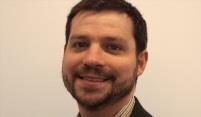George Murgatroyd wants the NHS to take a giant leap for mankind by getting much better at collaborating creatively
What does the NHS have in common with the US space agency NASA? Actually, more than you’d think.

Both are public sector organisations that are totemic in the minds of their respective nations. Both are highly respected internationally. And both are sitting on vast stores of data with the potential to help solve problems affecting all mankind.
However, when it comes to the last of these points, the similarity starts to unravel.
NASA’s big data processes are pioneering. It can easily quantify its data capture, including more than four terabytes of new earth science data every day.
Measuring the NHS’s daily data footprint is a distant aspiration, and advanced live streaming of complete NHS data to a central supercomputer is a long way off.
‘Advanced live streaming of complete NHS data to a central supercomputer is a long way off’
Capturing data efficiently is one thing. Harnessing its value is another. On this score, NASA has also led the way, working to open up access to its information, most recently through its Open Data project. This has both made datasets available in the interests of transparency, such as its WorkforceInformation Cube, but also, more strikingly, for globally collaborative innovation.
- NHS future will be tweeted, tagged and crowdsourced
- Share your ideas on how the NHS can better deliver care in the Change Challenge
Data innovation
I had the pleasure recently of meeting Nicholas Skytland, NASA’s very own “data evangelist”. It is his job to encourage and coordinate new ways of data innovation.
Through NASA’s Open Innovation project, he has been instrumental in setting open source research challenges to find technology solutions for human health and performance during space flight.
For example, NASA’s most recent Space Apps Challenge was an international mass collaboration event bringing together 8,000 participants in 91 locations to solve 40 global challenges in a 48 hour period.
By using publicly available datasets, participants managed to build groundbreaking solutions, including converting a smartphone into a microsatellite and building an app to allow global monitoring of air pollution through crowdsourcing photographs of the sky.
‘It’s vital we make full use of some of the world’s most valuable data to drive healthcare improvements’
NASA has also teamed up with Microsoft, Yahoo, Google and the World Bank to take part in broader “hackathons” under the umbrella title “Random Hacks of Kindness”. Over the past five years, this initiative has invited coders from around the world to develop open source software solutions to everything from landslide predictions to public sanitation.
Why do all this? Well, NASA is pretty confident that the solutions developed by these collaborations are developed at much faster pace and lower cost than traditional methods of research and development, while drawing on the capabilities of thousands.
NASA believes its global mass data collaborations are leading models for accelerating technology and empowering citizens. It hopes businesses and governments will take up similar initiatives.
Could such a complex institution such as the NHS harness the collaborative research potential, with all its very real concerns around information governance and data protection?
We’ve seen the difficulties encountered by some of the more pioneering projects under way in the NHS at present, particularly care.data, in broaching the thorny subject of sharing patient data.
Given the wider climate, this isn’t surprising; people are understandably concerned about how their information is being used, and to what end. But what is so disappointing is that the conversations around NHS data are so often about misuse, rather than use and potential.
Potential to save lives
Almost certainly, the data the NHS holds today has the potential to save far more lives than NASA’s assets.
The recent 100,000 genomes project heralds a new and powerful dataset with incredible opportunities for healthcare improvement.
‘If NASA draws on the skills of members of the public globally, why can’t the NHS?’
It is tantalising to think of the sorts of things that could be achieved if the NHS began a programme of cutting edge collaboration, and channelled some of the NASA thinking to achieve more effective ways of opening up access to data carefully and selectively to achieve bigger goals.
The concerns over mishandling confidential information must be addressed. But it is vital that we make full use of some of the world’s most valuable data to drive improvements in healthcare, not only in the UK, but globally. To this end, collaboration is key.
Tap that potential
This is not to say that the NHS isn’t making steps in the right direction, with the academic health science networks and the Farr Institute.
But it often feels that such research and development initiatives in the NHS are disjointed, and that the potential for creative collaboration is not fully tapped.
Can the NHS effectively drive forward the data revolution without rethinking how it collaborates with innovators, whether patients, researchers, charities, entrepreneurs, or business?
‘We will be able to solve so many of the NHS challenges through innovating the way we understand data’
It is not through NHS competition, privatisation, nor greater autonomy that major breakthroughs in our healthcare are likely to occur: it is through better collaboration – this includes collaboration internally, but also externally.
If NASA partners with the likes of Microsoft, Yahoo and Google to help solve challenges, and draws on the skills of members of the public globally, why can’t the NHS?
We will be able to solve so many of the challenges the NHS faces through innovating the way we understand data, and as our data gets bigger and bigger, this will become increasingly important.
If the NHS is to take on a more NASA like role in data innovation – acting as the clear leader in solving the challenges it faces – we need to get much better at collaborating creatively. It’s not rocket science.
George Murgatroyd is head of intelligence for Dr Foster


























6 Readers' comments